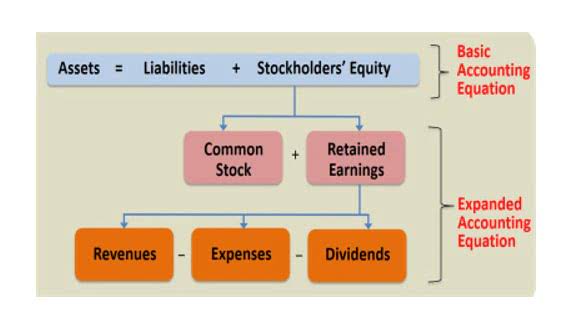
This program manages client funds held in trust by lawyers, which are typically nominal in amount or deposited for a short period only. Any interest earned on these funds is pooled together and used for legal aid, increasing access to justice for those who are unable to afford it. Trust accounting is the process of tracking and monitoring client funds that are held in trust. These funds must be held until they are used for a specific client’s case, and cannot be accessed any earlier. Unlike client accounts, a business account is not subject to the same level unearned revenue of scrutiny and regulations as is a bank account that holds client funds.
Set up payroll
In today’s fast-paced legal environment, embracing technology, particularly trust accounting software like RunSensible, is not just an option but a necessity. These tools offer unparalleled support in ensuring compliance with State Bar Regulations (American/Canadian), simplifying account management, and fostering transparency and trust trust accounting for lawyers with clients. With features tailored to the unique needs of law firms, such software streamlines the meticulous process of trust accounting, allowing lawyers to focus more on their clients and less on administrative burdens.
Legal Industry Report

The FUTA tax rate is 6%, which taxes wages up to the first $7,000 earned by the employee during the year. There are also state and sometimes municipal payroll taxes to be collected. Speak to your accountant to make sure you are correctly withholding each payroll tax. Also, ask if you are eligible to receive a tax credit for paying timely state unemployment taxes. Employment taxes are reported using a Form W-2 for each employee, and Form 940 and Form 941 if you withhold any taxes from an employee’s paycheck. Each of these records should be kept for a specific length of time—some for 10 years, some for as few as three.
Client Trust Accounting in California: A Lawyer’s Guide
For example, you may Bookstime invest in professional development opportunities if your goal is to expand your team’s skill sets. Many lawyers are required to set up Interest on Lawyer Trust (IOLTA) accounts depending on the state they operate in. Interest earned on IOLTA accounts is sent directly to local Bar Associations to support charitable legal services.

Look for software that offers detailed record-keeping, automated reconciliation features, and robust reporting capabilities. It’s also beneficial if the software integrates with other tools your firm uses, like QuickBooks for financial management. Platforms like RunSensible are designed specifically for legal professionals, offering tailored solutions that meet these criteria. Can I manage my firm’s trust accounts manually, or do I need specialized software?

- Providing several flexible payment options can help your team get paid faster and improve payment collection.
- In addition to providing litigation funding and support for investment recovery and group antitrust actions, Deminor renders the same world-class support to companies with individual B2B claims.
- A client trust account is a bank account that consists of money from the client (or awarded to the client) that is held as a trust.
- Federal insurance contributions consist of the social security and Medicare taxes you withhold from your employee’s pay and match with your own contributions.
- Pooled trust accounts aggregate funds from multiple clients into a single account.
- Sometimes these fees can become hard to track, causing you to charge the wrong client’s account.
While it is possible to manage trust accounts manually, doing so increases the risk of errors and compliance issues due to the complexity and meticulousness required in trust accounting. Specialized trust accounting software significantly reduces these risks by automating many of the processes involved, such as transaction logging, account reconciliation, and client reporting. Trust accounting refers to the process of managing funds that a lawyer holds on behalf of clients. It’s crucial for lawyers because it ensures that client funds are handled with integrity, transparency, and in accordance with legal and ethical standards.
- The tax implications of this method also allow your firm to pay tax on income once it’s received and in the bank.
- Accrual accounting records revenues and expenses when they are earned and incurred, regardless of when the money is actually received or paid.
- Law firms must diligently keep client funds separate from their operating accounts and adhere to the legal and ethical standards governing trust account management.
- IOLTA accounts are special trust accounts where lawyers hold client funds that are too small in amount or held for too short a time to generate interest for the individual client.
- First, trust accounting requires meticulous record-keeping and detailed transaction tracking specific to each client.
IOLTA stands for “Interest on Lawyers’ Trust Accounts.” Once the earned fees require disbursements from the client trust account, funds are transferred from the trust to the operating account. Client trust accounts are used to manage funds that belong to clients, such as advance fee deposits, settlement proceeds, and other client funds that require safekeeping. The interest generated typically depends on the type of account and the institution holding the funds. See invoices paid 70% faster with LeanLaw’s streamlined accounting workflows. Though rules vary from state to state, most state Bar Association rules permit debit, credit and other electronic payment processing for law firms. For an in-depth discussion about the rise of electronic payments in the American legal profession, check out this guide to payment processing from the American Bar Association.

If you fail to comply with state bar rules when handling your clients’ trust accounts, you can lose your law license. PracticePanther offers software to help you accurately track funds, manage your accounts, and adhere to state bar rules and regulations. Read on to learn more about using these tools to stay compliant, and to request a free demo.
Ethical Management of Client Funds

Below are a few more tips your law firm can consider to help improve your trust accounting system. IOLTA trust accounts earn interest that banks typically transfer automatically to your local Bar Association. The associations generally use these interest funds for activities such as civil legal services. A client trust account is a bank account that consists of money from the client (or awarded to the client) that is held as a trust.

